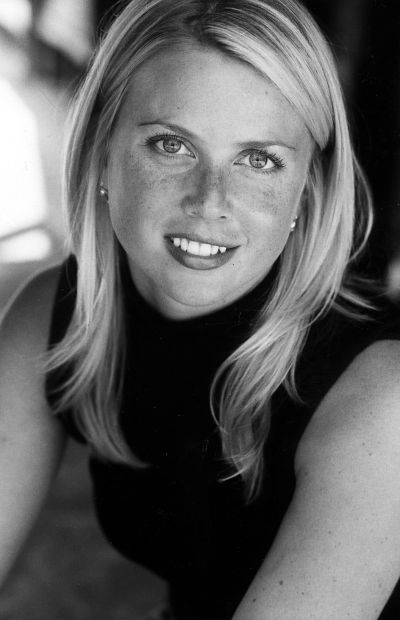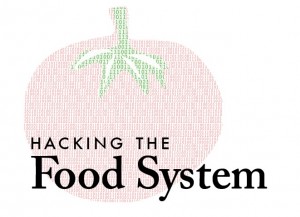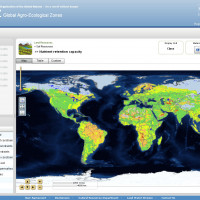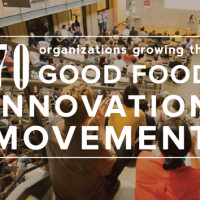[Hacking the Food System is an online conversation exploring how technology, information and data can change the food system status quo. Join the conversation below, on Twitter (hashtag #foodtech), or Facebook.]
 When I was a kid in the 80s, my Mom would tell me to eat everything on my plate – because kids were starving in Ethiopia. There came a time when that argument started to seem ridiculous because my understanding of global geography was wide enough to know that my left-over food was never going to feed Ethiopia’s hungry children.
When I was a kid in the 80s, my Mom would tell me to eat everything on my plate – because kids were starving in Ethiopia. There came a time when that argument started to seem ridiculous because my understanding of global geography was wide enough to know that my left-over food was never going to feed Ethiopia’s hungry children.
Now that I’ve worked as a food activist and learned of the realities of our global food system…I realize that some little pieces of my Mom’s admonition were right.
The food system is inextricably interconnected. The same companies that we buy our typical American dinner food from are involved in production and marketing of foods all around the world. Using technology and hacking the hard data of the global food trade, production, and consumption is absolutely essential for us to be able to understand how our own eating habits ARE effecting the world around us.
Externalties in the environment, consequences of consolidation, and the human cost of trade need to be assessed in deeper, more meaningful ways so that we can really be confident that our food choices are good for both our health and the world around us.
One quick example – we’ve been divesting in agriculture for the past 30 years, shifting our assistance to the hungry to food aid (mostly the excess commodities from large agri-business) and away from sustainable investments in small farmers, good soil and irrigation. By many accounts, including that of Dr Raj Shah, USAID Administrator, the famine that is devastating the Horn of Africa is connected the degradation of agriculture and the lack of infrastructure to manage drought.
It would be great to hack into the global trade of food, food aid and agriculture, so that we can learn which companies have lobbied to send US corn and soy to the Horn of Africa in lieu of developing sustainable agriculture. It would be great to hack into the real story of our food system and shed light on why we don’t have the great agriculture extension programs and seed banks of yesteryear, and why we are just “discovering” that investing in soil and conservation techniques is actually the optimal way to keep farms healthy and people fed.
The advice of the UN Food and Agriculture Organization to prevent future famine in the Horn of Africa includes supporting rural livelihoods (small farmers), coordinating communication systems and implementing risk management programs. None of those things includes sending food from the other side of the world.
Understanding the global food system and making smart, sustainable changes in the way we eat and the way we help to feed the hungry can prevent some of the famines of the future. As we’ve accepted a diet based on the overproduction of corn and soy, we’ve allowed for an international food system predicated on it. Maybe, if we choose to eat our veggies, instead of highly processed, corn-based fast food, we COULD help a hungry child in the Horn of Africa. For the sake of those children, lets try to hack into and fix our global food system soon.
______________
Ellen Gustafson is the Founder and Executive Director of the 30 Project and a sustainable food systems activist. Ellen is also co-Founder of FEED Projects, LLC, a charitable company that creates good products that help better the world and the FEED Foundation, FEED’s non-profit partner. Ellen has worked as a Public Information Officer and Spokesperson for the UN World Food Program (WFP), at ABCNews and at the Council on Foreign Relations. She holds a BA from Columbia University and is pursuing a Masters in Food Studies at NYU.






